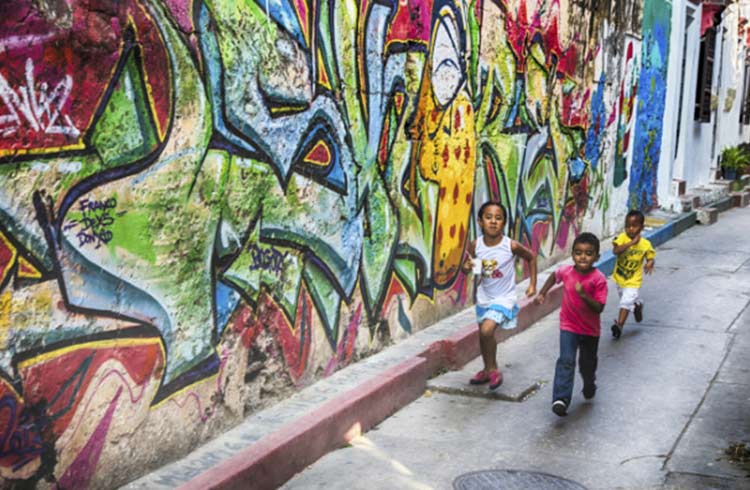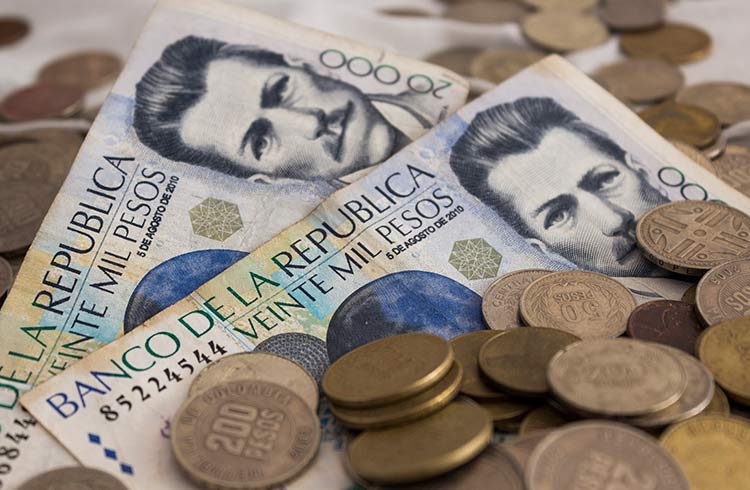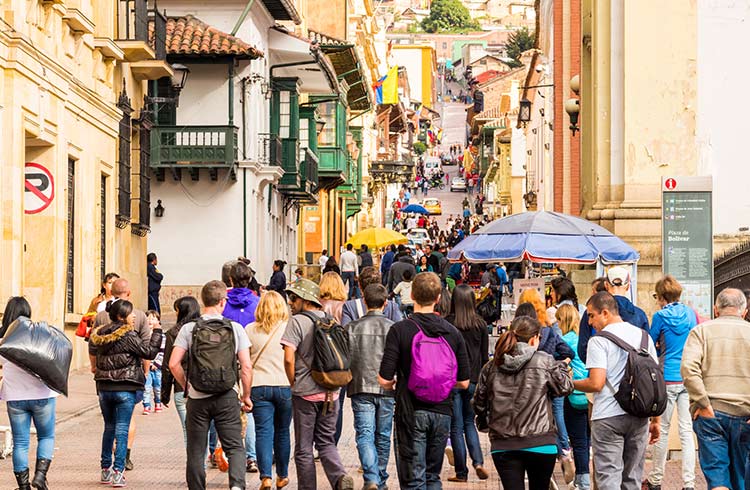Is Colombia Safe for Travelers? 6 Essential Safety Tips
Is Colombia dangerous? Should you worry about protests and express kidnappings? We debunk the myths to show you Colombia's safer side.
 Photo © iStock/garytog
Photo © iStock/garytog
Colombia, a vibrant South American country once known for drug wars and kidnappings, has undergone a remarkable transformation in recent years. While its past may still linger in people's minds, today's Colombia is a favorite destination among adventure travelers, offering rich culture, stunning landscapes and a welcoming atmosphere.
So, is Colombia safe to visit? The short answer is yes – as long as you stay aware, avoid high-risk areas, and follow basic safety precautions. Colombia can offer some of the most memorable experiences in South America.
- The reality of safety in Colombia
- Safety tips for avoiding crime in Colombia
- Emergency numbers in Colombia
- Political stability
- Safe and popular destinations in Colombia
- Kidnapping in Colombia: Should you be worried?
- Video: Why you shouldn't do cocaine in Colombia
The reality of safety in Colombia
While Colombia's crime and kidnapping rates have significantly decreased in the last few decades, it's essential to exercise caution. Petty crimes, such as pickpocketing, phone snatching, and muggings are common in crowded areas and on public transportation – particularly in larger cities like Bogotá, Medellín, and Cali.
Though Colombia is reasonably safe for tourists, certain regions remain off-limits due to the risks of kidnapping and other crimes. Currently, the US State Department has a Level 3: Reconsider Travel advisory for Colombia, and a Level 4: Do Not Travel warning for the areas around the Venezuela and Ecuador borders, as well as regions like Arauca, Cauca (excluding Popayán), and Norte de Santander. The early months of 2025 showed an increase in hostilities between guerilla groups, especially in Norte de Santander.
Safety tips for avoiding crime in Colombia
A well-known Colombian phrase, "no dar papaya," essentially means "don't make yourself an easy target." It’s good advice for any traveler. Here’s how to apply it:
- Blend in. Colombians, especially in cities, tend to dress well. Avoid standing out by dressing like a local – ditch the hiking pants and flip-flops for jeans and a casual, stylish shirt.
- Limit valuables. Keep your phone, wallet, and cards hidden, carry only the cash you need for the day, and leave important documents, like your passport, in a safe place..
- Stick to safe transport. Always use official taxis, ride-hailing apps, or public transportation that your accommodation recommends.
- Avoid rural roads at night. Stick to well-lit and populated areas after dark.
- Stay away from drugs. Colombia’s drug history may seem intriguing, but asking for or using drugs here can put you at serious risk.
- Avoid using your phone in the street – step into a café or shop instead.
- Avoid walking alone at night in poorly lit or unfamiliar areas.
Learn how World Nomads travel insurance could protect your trip to South America.
Emergency numbers in Colombia
- Tourist police: dial (1) 3374413
- National emergency number (24-hour general line): dial 123
- Medical emergencies: dial 125
- Fire: dial 119
- American embassy emergency number: dial (1) 2752000
Political stability
Gustavo Petro, Colombia's first leftist president, took office in 2022, ushering in a period of change.
While his election initially calmed much of the civil unrest, the political situation in Colombia remains dynamic. Demonstrations and protests can occur, though they are generally peaceful. However, as a traveler, it's essential to avoid large gatherings, as protests can escalate without warning.
Stay informed by following local news and avoid protest areas to ensure your safety.
Safe and popular destinations in Colombia
The good news is that many regions of Colombia are considered safe for tourists. Top destinations include:
- Bogotá: While the capital city has its rough areas, it also offers world-class museums, vibrant neighborhoods like La Candelaria, and a bustling culinary scene.
- Medellín: Once infamous for its cartel violence, Medellín has transformed into one of the most innovative cities in the world, offering breathtaking views, vibrant nightlife, and friendly locals.
- The Coffee Region: Quindio, Risaralda, and Caldas are known for their lush coffee plantations, charming towns, and stunning natural beauty.
- Caribbean Coast: Cities like Cartagena, Barranquilla, and Santa Marta boast beautiful beaches, historical architecture, and a lively atmosphere.
- Pacific Coast: Eco-tourism is booming in Nuquí and Bahía Solano, known for their biodiversity and opportunities for whale-watching and jungle treks.
When traveling to less-touristy destinations, make sure you book with reputable tour companies and hire knowledgeable local guides. Always ask locals or your hotel staff which areas to avoid, and follow their advice.
Kidnapping in Colombia: Should you be worried?
Kidnapping rates have dropped significantly over the past decade, thanks to improved security measures and the peace agreement between the Colombian government and rebel groups like the FARC. The risk of being kidnapped in major tourist areas is low. However, venturing into remote or conflict-prone regions increases your risk, so stick to well-traveled areas and avoid government-designated "do not travel" zones.
What is "Secuestro Express"?
"Secuestro express," or express kidnapping, remains a rare but existing crime in Colombia. In these cases, criminals abduct someone for a short period, forcing them to withdraw money from ATMs. The most common scenario involves flagged taxis, where criminals jump in and force the victim to comply.
To stay safe, always:
- Use ride-hailing apps like Uber or officially marked taxis called from hotels or taxi stands.
- Avoid entering taxis that already have passengers inside.
- Consider carrying a second, low-limit credit card for emergencies.
Video: Why you shouldn't do cocaine in Colombia
Related articles
Simple and flexible travel insurance
You can buy at home or while traveling, and claim online from anywhere in the world. With 150+ adventure activities covered and 24/7 emergency assistance.
Get a quote

45 Comments